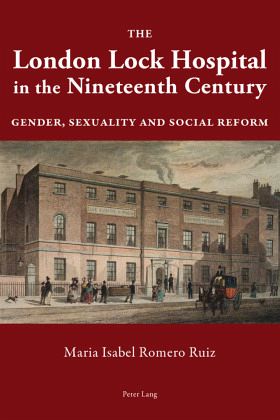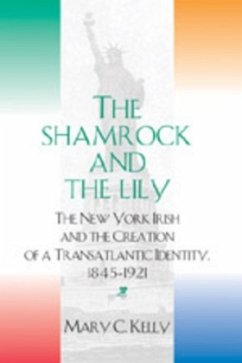
The London Lock Hospital in the Nineteenth Century
Gender, Sexuality and Social Reform
Versandkostenfrei!
Versandfertig in 6-10 Tagen
71,90 €
inkl. MwSt.

PAYBACK Punkte
0 °P sammeln!
Based on archival research, this volume is concerned with the treatment of «fallen women» and prostitutes at the London Lock Hospital and Asylum throughout the nineteenth century. As venereally-diseased women, they were treated in the hospital for their physical ailments; those considered ripe for reform were secluded in the asylum for a moral cure. The author analyses the social and cultural implications arising from the situation of these female inmates at a time when women's sexuality was widely debated, using a gender-informed and postmodernist approach. The volume covers notions of pur...
Based on archival research, this volume is concerned with the treatment of «fallen women» and prostitutes at the London Lock Hospital and Asylum throughout the nineteenth century. As venereally-diseased women, they were treated in the hospital for their physical ailments; those considered ripe for reform were secluded in the asylum for a moral cure. The author analyses the social and cultural implications arising from the situation of these female inmates at a time when women's sexuality was widely debated, using a gender-informed and postmodernist approach.
The volume covers notions of purity and deviancy, issues of gender and sexual identity, the social and cultural issues connected with so-called fallen women and prostitutes, and descriptions of venereal disease and treatments for women patients at the time. The Contagious Diseases Acts and their impact are examined, as are the social and cultural implications of the creation of specialised hospitals and places of moral confinement. The book provides a complete picture of the Lock Hospital and Asylum and is an important contribution to the history of hospitals in the Victorian period.
The volume covers notions of purity and deviancy, issues of gender and sexual identity, the social and cultural issues connected with so-called fallen women and prostitutes, and descriptions of venereal disease and treatments for women patients at the time. The Contagious Diseases Acts and their impact are examined, as are the social and cultural implications of the creation of specialised hospitals and places of moral confinement. The book provides a complete picture of the Lock Hospital and Asylum and is an important contribution to the history of hospitals in the Victorian period.












